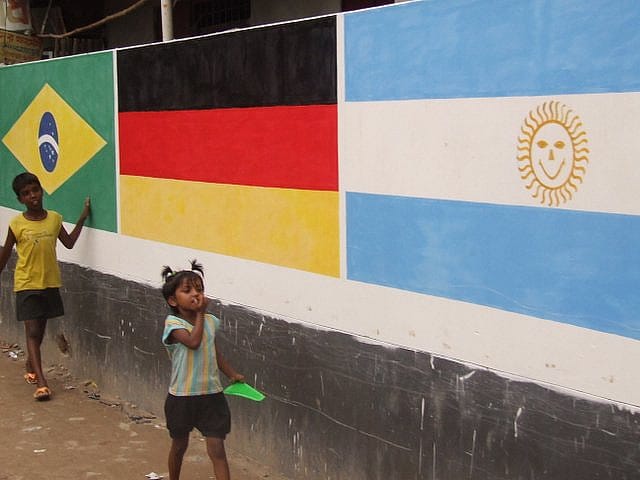
by Ecoziva (Brazil) | Jun 9, 2014 | 2014, Brazil, ONE, Spirituality, World Interviews, World Moms Blog Writer Interview

Even if you have heard very little about Brazil, you probably know soccer is a big thing here. In fact, for a long time Brazil was known mostly for its soccer, its Carnaval (its version of Mardi Gras), its beautiful women and, perhaps, its forests. Unfortunately, considering that Brazil is a huge and extremely diverse country in so many senses, that is a very limited view of the country. However, as we are a few days away of the World Cup, today I want to speak about soccer. The World Cup is something that has always brought about an overall sense of excitement, regardless of whether one is or not a soccer lover. It is the time people bring out their flags and most everyone shows a tad of patriotism. Of all of the World Cups I have witnessed in my lifetime, three come to mind. The first is also the first World Cup I remember, held in Mexico, in 1986. I lived in a small town in northeastern Brazil, and I recall being enthralled by the big, spontaneous party in the streets after Brazil won one of the games. There were firecrackers and people parading and dancing in the town plaza.
Others drove up and down the cobblestone streets honking their horns, the vehicles full of people half out of the windows or even on top of the cars, shouting “Brazil, Brazil!”, while waving their flags.
Unfortunately, Brazil did not win that cup, and the heavy silence that followed was a big contrast to that party, even to myself, who barely knew about soccer then and didn’t really understand what was going on. Fast forward to the 1990s. 1994 was a big mark, of course, because Brazil won the cup for the fourth time. I was a teenager and much of the excitement was because so-and-so players were cute. The mother of a friend got a couple of autographs of the team captain for me and a friend of mine, which I still have. The upside was that I was visiting family in the United States, where we watched the games together and where the cup was actually happening (although I didn’t go to any games live). On the other hand, I remember being somewhat bummed because I was still travelling when the players returned to Brazil and paraded in one of the main streets of my city to commemorate the victory. And, of course, there was a big party that I missed. The third cup that I recall with fondness happened in 2006. One of my best childhood friends, who is from India and presently lives in Singapore, came over to visit, and we watched some games together. The World Cup always brings special memories of our friendship as she was a soccer enthusiast (she’s the friend who got the other autograph!), and we always saw the games together as teenagers. Unfortunately, that cup in 2006 was the last time we saw each other in person.
This year, the World Cup will be in Brazil. In fact, one of the games will be in a town neighboring mine. When one of the World Moms Blog editors suggested I write a post about the pre-cup climate here in Brazil it made me realize two things: 1) how detached I have been from this whole World Cup thing lately and how little excitement anticipation of the games have brought me this time 2) a sense that I might not be the only one feeling this way.
The last time the World Cup was held in Brazil was in 1970. Had a World Cup occurred here during my adolescent years, it would have been a big happening for my friends and I! Yet ,now, we have three kids, a demanding job and very little spare time; and what I really have been looking forward to are the days I will have off because of the games and how much overdue work I will get done while others watch the games.
Yes, in case you don’t know, everything stops here during the games that involve Brazil – stores close, companies send their employees home early or TVs get turned on in the companies themselves, and so on. Basically everyone stops to watch the game, no matter what day of the week.
That takes me to the second point. As I said, I have been a little detached from this whole World Cup reality, so I don’t know how accurate the following words will be, but the feeling I get is that the excitement is not as big as it would have been a few years ago, and it probably is a good sign. When it was first decided that the cup would be here in 2014, there truly was a sense of excitement, not only for the championship itself, but because of possible job, business opportunities and the like.
Yet, the years went by and people witnessed millions (billions?) spent on stadiums and other cup-related costs, while so many other essential areas need investment, notably education and health care.
To illustrate, here is a joke that has been going around these days. The parents take their newborn baby to the notary to get his birth certificate. When the notary asks what they are going to name the baby, the mother says: “World Cup Stadium – that way the government will surely invest in him!” As I said, I don’t know how accurate this perception of lesser excitement is, or if I am an anomaly, but if it is true, I take it as a good sign. It means that the population is maturing and that at least part of it won’t fall for the bread and circus trick any longer. Not that the World Cup, soccer or any kind of entertaining is bad in itself – but, as a country, there must be priorities.
Are you a Brazilian mother? If so, do you share the same sentiment? And, for all the World Moms out there, who will you be supporting in the games?
This is an original post to World Moms Blog by EcoZiva in Brazil.
Eco, from the greek oikos means home; Ziva has many meanings and roots, including Hebrew (brilliance, light), Slovenian (goddess of life) and Sanskrit (blessing). In Brazil, where EcoZiva has lived for most of her life, giving birth is often termed “giving the light”; thus, she thought, a mother is “home to light” during the nine months of pregnancy, and so the penname EcoZiva came to be for World Moms Blog.
Born in the USA in a multi-ethnic extended family, EcoZiva is married and the mother of two boys (aged 12 and three) and a five-year-old girl and a three yearboy. She is trained as a biologist and presently an university researcher/professor, but also a volunteer at the local environmental movement.
More Posts

by Sarah Hughes | May 30, 2014 | 2014, Family, Kids, Maternal Health, Motherhood, Parenting, Sarah Hughes, USA, Working Mother, World Interviews, World Motherhood, Younger Children
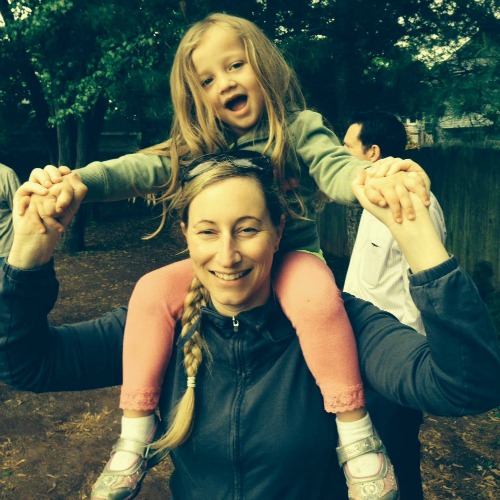
Sarah Hughes has been helping out behind the scenes at World Moms Blog. Read her interview to learn more about our newest contributor in North America! (more…)
Sarah grew up in New York and now calls New Jersey home. A mother of two, Derek (5) and Hayley (2), Sarah spends her days working at a University and nights playing with her children. In her “free” time Sarah is a Shot@Life Champion and a volunteer walk coordinator for the Preeclampsia Foundation. Sarah enjoys reading, knitting, sewing, shopping and coffee. Visit Sarah at her own blog Finnegan and The Hughes, where she writes about parenting, kid friendly adventures and Social Good issues. Sarah is also an editor, here, at World Moms Blog!
More Posts - Website
Follow Me:




by Ecoziva (Brazil) | Apr 7, 2014 | Brazil, Environment, Millennium Development Goals, Nature, Social Good, Uncategorized, World Interviews, World Motherhood
This post follows up on WMB’s eight-month campaign to raise awareness for the eight Millennium Development Goals (MDGs). In this post, we reflect on MDG #7: Ensure Environmental Sustainability. The following is an interview with Silvio Rocha Sant’Ana, president of the Esquel Group.

World Moms Blog: What are some examples of how the Esquel Group supports environmental sustainability?
SRS: We have been working with other civil society organizations (CSOs) and governmental institutions in the fields of adapting to climate change, combating desertification (in Northeast Brazil), designing proposals for public policies on these matters, and dialoguing directly with financial agencies (public and private) in order to make them more adjusted to sustainability criteria.
How can mothers help support your organization in achieving MDG #7?
SRS: It is a new question for me. Thinking aloud: mothers have a fine sense of survival and can operate in adverse conditions much better than men. We work with a lot of very poor mothers (especially at the Pastoral da Criança and the microfinancing project). The way they think (and act), their relationship to the environment, the ability to allocate resources in the difficult social conditions they live in – all of this is a continuous lesson we can learn from. In fact, it would be interesting to have an environment that would enable us to maximize their teachings and contributions.
What countries does the Esquel Group mainly work in?
Silvio Rocha Sant’Ana: Esquel is currently active in the USA, Ecuador and Brazil. Each organization is independent, and defines its own agenda; we have common concerns and themes.
How does Esquel Group bridge the gap of joining people in economic development?
SRS: We have developed many activities in different fields. In Brazil we have focused in the Northeast region (where there are severe environmental and social restrictions), on children aged 0-6 years in Brazil, and in the field of technical support. We also work closely with the Pastoral da Criança, including microfinancing for employment and income generation (mainly for women).
What is the Esquel Task Force?
SRS: The Esquel Task force is an initiative from the USA Esquel Group and fosters dialogue, advocacy and lobbying among American and Latin American organizations.
Is there a specific example in Brazil where Esquel made a big impact when it came to the environment?
SRS: There is a very famous Project in Brazil called “1 million cisterns” – tanks to collect rain water in the semi-arid region of Brazil. Esquel has had a leading role in building up this project and the related public policies. It is considered an extraordinary and successful case of public-private cooperation and has mobilized, to date, more than US$200 million. It is a project managed entirely by CSOs and its main goal is to create a new pattern of social wellbeing in the semi-arid region, with full respect to environmental conditions.
What would you say are the greatest environmental issues facing Brazil today?
SRS: Adaptation to climate changes and associated cultural adjustments within an “economic and social environment”, which favors “economic growth” above all things (including social and environmental welfare).
What is the unifying theme of all Esquel’s activities worldwide?
SRS: The unifying theme of Esquel’s activities is the strengthening of civil society, specifically citizen organizations that further democracy.
This is an original interview post for World Moms Blog by our writer in Brazil, EcoZiva.
For more about the Esquel Group, visit their website at http://esquel.org/.
Eco, from the greek oikos means home; Ziva has many meanings and roots, including Hebrew (brilliance, light), Slovenian (goddess of life) and Sanskrit (blessing). In Brazil, where EcoZiva has lived for most of her life, giving birth is often termed “giving the light”; thus, she thought, a mother is “home to light” during the nine months of pregnancy, and so the penname EcoZiva came to be for World Moms Blog.
Born in the USA in a multi-ethnic extended family, EcoZiva is married and the mother of two boys (aged 12 and three) and a five-year-old girl and a three yearboy. She is trained as a biologist and presently an university researcher/professor, but also a volunteer at the local environmental movement.
More Posts

by World Moms Blog | Mar 10, 2014 | 2014, Awareness, Bilingual, Communication, Cultural Differences, Culture, Elections, Eye on Culture, Guest Post, Human Rights, Humanity, International, Language, Life Lesson, Living Abroad, Media, Multicultural, Politics, Tragedy, USA, World Events, World Interviews, World Motherhood, World Tour, World Voice
Today, we have a special guest post by a Ukranian mother living in the United States, Olena Centeno, of Bilingual Kids Rock. Olena opens the window and lends us her personal perspective to the current events in Ukraine…
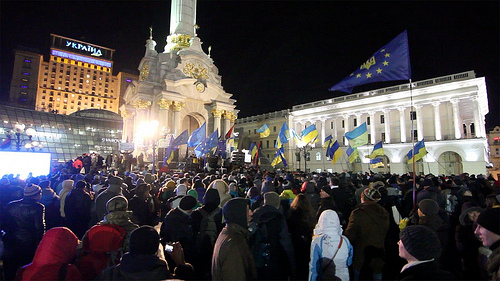
Protest in Kiev, November 2013
What’s it like growing up in Ukraine?
As a Ukrainian, I grew up speaking two languages: Russian and Ukrainian. I ate Ukrainian borsht for lunch and Russian pelmeni for dinner. I love Tchaikovsky’s Sleeping Beauty and Carols of the Bells by Leontovych. I am raising my own children trilingual in English, Russian and Ukrainian. In fact, the two cultures (Russian and Ukranian) are considered so close, that if an Ukrainian abroad says s/he is from Ukraine people often say “Oh, so you are from Russia?”
What’s going on between Russia and Ukraine?
With Russian troops moving across the sea into Ukraine’s Crimean peninsula, a lot of Westerners are starting to ask this question.
The current conflict in Ukraine is more than three months old. It began with a peaceful demonstration on November 21 at Independence Square (Maidan) in Kiev, the capital of Ukraine, when the (now ousted) Ukrainian president (Yanukovich) hesitated to sign an Association Agreement with the EU. This had been one of his major election promises and in breaking it he ignored the desire of millions of Ukrainians.
During the past three months, the “EuroMaidan” demonstration has grown into a much bigger movement. It started as a response to the failed EU deal but then truly turned into a movement against the corrupt government of president Yanukovich, who moved to keep Ukraine in long-lasting and very painful economical ties with Russia.
Then, after the government passed harsh, anti-assembly laws, it became about the basic human right to be able speak and think freely without being punished for it.
More than a hundred lives were lost and thousands injured during violent attempts to remove the demonstrators but people did not leave the cold streets of Kiev. More freedom fighters came from all over Ukraine to support them. Many other Ukrainian cities stood up as well. After three months of struggle, Mr. Yanukovich was impeached and left Ukraine (he refused to sign a resignation; he just ran away). His presidency was considered illegitimate and a new, temporary government was elected.
As Ukrainians were mourning over lives lost and looking into the future with great hope to build their country on principles of trust and freedom, a new enemy emerged: Informational War.
Along with Russia, Eastern Ukraine—where the majority is Russian speaking—is dominated by Russian-language news from the Russian media. Unfortunately, the Russian media coverage of events that have happened over the past three months is falsified [and full of propaganda].
Now, after the armed occupation of Ukrainian territory in Crimea by Russian troops, the reason for their untruthful reporting is understood: Creating social opinion in Russia and Russian-speaking Ukraine justifies military intervention into Ukrainian territories.
Personally, I think Mr. Putin has an imperialistic plan to be the most powerful ruler in modern history—politically and financially—and he will stop at nothing to add Ukraine to his control.
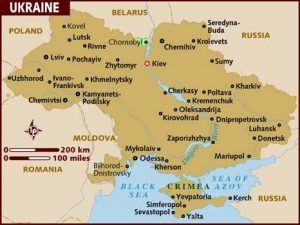
Russian Media Propaganda Uncovered
The following are all lies that have been spread by the Russian media leading up to the invasion of Ukraine by Russian troops:
1. FALSE: Kiev was Overrun by Violent Riots
Despite violent clashes, most of Kiev stayed peaceful throughout the demonstrations. The day-to-day lives of residents were largely unaffected outside of Independence Square and the areas immediately surrounding it. Very little of Kiev or the surrounding countryside was damaged or disturbed by the protests.
I know this because I called my family and friends every day. My nephews were going to school as usual, most of the people attended work on a daily basis, and all shopping malls and grocery stores were working (except for a few in the middle of the protest areas downtown).
2. FALSE: Anti-Russia Fascists Led the Ukrainian Protests
The vast majority of protesters were ordinary citizens tired of a government that they viewed as corrupt and unwilling to listen to the people. There were no fascist elements leading the demonstrations, and there are none leading the new government.
Many of the people I know personally were in Maidan: teachers, IT professionals, doctors, stay-at-home moms, businessmen, university professors, hair stylists and many others. People I worked with and went to school with. And no one will ever convince me that they are fascists. My daughter’s god-father is a surgeon and worked days and nights protecting the health and saving the lives of many.
3. FALSE: The New Government Will Force All Ukrainians to Speak Ukrainian
This is a particularly effective myth for Russian-language media, since it appeals directly to the people who would be most affected. Language has long been a contentious issue in Ukraine. Claims that Russian will be abolished are being used to generate anger against the new government.
The Ukrainian parliament voted to repeal a 2012 law allowing the establishment of minority languages as official state languages in individual provinces on February 23, 2014 but acting President Oleksandr Turchynov vetoed the move. Russian is currently recognized as an official language, is legal for state use in several Ukrainian provinces, and is guaranteed state protection “in all spheres of public life” in Crimea specifically.
I speak Russian and Ukrainian to my children here in the USA. I see language first and foremost as a tool for communication — and shame on any politicians who use it as a reason for war.
4. FALSE: Ukrainian Demonstrators Have Been Attacking Russians or Russian-Speakers
Another unproven and untrue claim widely circulated in Russian-language media is that the Euromaidan protesters were deliberately attacking Russian speakers.
The cruel result is that ordinary Russians – good, wholehearted, educated people – are now eager to help a Ukraine that they think is swamped by fascists! I have family in eastern Ukraine and my god-mother lives in Moscow. They have called multiple times, scared for the lives of my parents in Kiev. They really think Ukraine is in danger.
There is no evidence to support the claim, and nearly all cases of violence during the protest were perpetrated against civilians by security forces. The Euromaidan protests had very little to do with cultural or language issues in general.
While Yanukovych’s perceived obedience to the Russian government was certainly a source of anger in Ukraine, this anger was directed at the President and the actions of the Russian and Ukrainian governments, not to the Russian people or culture.
5. FALSE: The Berkut and Other Security Forces Fought in Self-Defense
Russian news broadcasts have shown extensive footage of the Berkut and other riot police under attack but nearly none of their attacks on civilians. The reality is that security forces attempted to crush peaceful protests with deadly force, and were barely driven back with improvised weapons like clubs and Molotov cocktails. The superior force and aggression were always on the side of the Berkut.
6. FALSE: The Independence Square/Euromaidan Protests Were Organized by Americans
We joke that EuroMaidan is now supported by Americans because my American husband and I made donations to help supply people with warm clothing and blankets during cold winter months.
I am not claiming that on a political level there is no lobbying of interests from outside countries and unions but once again: the politics of the country and the people of the country are two different things.
The vast majority of protesters were native Ukrainians and ordinary residents of Kiev and the surrounding country.
7. FALSE: Fascism Will Spread from Ukraine to Russia
This is another falsehood dependent on the idea that the Euromaidan demonstrators were fascist extremists. It is being used as a justification for Russian invasion. The Russian government claims it is defending Russian-speakers in Ukraine and its own borders from Ukrainian fascists but in reality those fascists do not exist.
What is next?
The military intervention is not over. It is hard to say what is going to happen next. There is a lot of talk going on at a very high, political level involving the EU and the US.
But Ukrainians have already had the biggest win in this struggle: themselves.
They proved to themselves that they care:
- They care about all of our people (amazing examples of collaboration happened during the civil unrest!);
- they care about the future of their country;
- they care about their freedom;
- they care enough to recognize the differences among themselves and to stay united anyway.
The revolution was heartbreaking and tearful but as a result, Ukrainians became true patriotic citizens of their country:
Glory to Ukraine, Glory to Heroes!
слава Україні, слава героїв
(slava Ukrayini, slava heroyiv)
For me, personally, it has been a life lesson in how to raise my own children. I have a clear goal to raise multicultural and multilingual children, who respect other languages and cultures and can see our shared humanity no matter how politicians try to divide us.
This is an original guest post to World Moms Blog by Olena Centeno.
 Olena Centeno is a Ukrainian who lives in USA, a happy mom of three wonderful kids ages 2-9 and a wife to the great. She speaks three languages herself and is raising her kids to be multilingual in English, Russian, Ukrainian and Spanish. She founded Bilingual Kids Rock, where she helps families on their bilingual journey. She also enjoys photography and video making as a way to preserve precious moments of life.
Olena Centeno is a Ukrainian who lives in USA, a happy mom of three wonderful kids ages 2-9 and a wife to the great. She speaks three languages herself and is raising her kids to be multilingual in English, Russian, Ukrainian and Spanish. She founded Bilingual Kids Rock, where she helps families on their bilingual journey. She also enjoys photography and video making as a way to preserve precious moments of life.
You can connect with her at Bilingual Kids Rock.
Photo credit to Oxlaey. This photo has a creative commons attribution license.
World Moms Blog is an award winning website which writes from over 30 countries on the topics of motherhood, culture, human rights and social good. Over 70 international contributors share their stories from around the globe, bonded by the common thread of motherhood and wanting a better world for their children.
World Moms Blog was listed by Forbes Woman as one of the "Best 100 Websites for Women 2012 & 2013" and also called a "must read" by the NY Times Motherlode in 2013. Our Senior Editor in India, Purnima Ramakrishnan, was awarded the BlogHer International Activist Award in 2013.
More Posts

by ThinkSayBe | Mar 7, 2014 | 2014, Kids, Motherhood, ThinkSayBe, USA, World Interviews, World Moms Blog Writer Interview, World Motherhood

Hello everyone! My name is Sophia. I hope to be reading many blogs from people around the world. We have so much to share: factual, fiction, personal realities, etc…. and the internet has definitely eased our ability to share our differences and similarities.
Where in the world do you live? And, are you from there?
I live in Florida, USA. I am not originally from here. In fact I am not from the US of A. at all! I come from Tanzania and have lived in the US for a little over 14 years. Time has definitely flown by fast, but you know what they say about time flying…it only does when you’re having fun!
What language(s) do you speak?
When people ask me what languages I speak and I say I speak English, Kiswahili, and Italian, they often look at me quizically, so I will share the story behind it!
I was born in Tanzania but relocated to Italy as an infant. Well, you know, my mom and ’em packed me up and took me with them; thankfully! Thus it is that I speak Italian. This romantic language was my one and only lingua until we moved back to Tanzania. As we arrived in Tanzania I only knew a few words in English and fewer in Kiswahili. I realized that I had to learn quickly if I wanted to make friends and do well in school. Luckily my mother already spoke both languages and I met a girl who spoke English and Spanish. Although Spanish and Italian aren’t the same, they are similar enough for us to exchange short sentences. I would memorize what she said (if I didn’t understand it), run to my mom to ask her what it meant, get a translation of my response (in English), run back to my friend and continue the conversation in this manner. Fun times!
I learned more English and Kiswahili in primary school, and by talking with people all around me.
When did you first become a mother?
I first gave birth in December 2001, but I would say I first became a mother when carrying my baby as of March 2001. I know some cultures count the age of the child from when it is in-utero, and I think being a mother starts then as well. Beginning the first few months of pregnancy, we have to be conscious of our actions, food and drink intake, thoughts, emotions, speech…. and we are protective of our ‘belly’ as if the baby was bundled on the outside of our belly!
My second baby was born in December 2012! Yes, 12 years (and two days) apart! I think the oldest had a conversation with the baby and said ‘Hey, I will love you and all, but I tell you, it will be much better if we are born on different days! Trust me on this!’
Are you a stay-at-home mom or do you do other work inside or outside the home?
I just recently went from working part-time from home, being a stay-at-home mom, and running my photography business whenever possible, to working full-time outside of the home, being a liaison for Tanzania-US relations, and working my photography business whenever possible (Smile).
I have been a photographer for almost nine years, having started in Los Angeles, CA. I LOVE photography and if I could earn my living from it alone, I most certainly would. However, I haven’t taken this business ‘on’ as consistently as I know I should & could…so for now I also work for another really awesome company. I work at night so that my husband and I can keep our baby out of child-care. I feel blessed to have this arrangement! There are way too many child-care related horror stories out there these days.
Why do you blog/write?
I blog because I enjoy writing. I blog because I am one voice, and one plus one makes seven billion. I may not have the most important thing to say, but what if another person needs to read something specific, and she/he comes across my blog and finds exactly what she/he needed at that moment? What if she needed to feel empowered; to feel like she isn’t alone in her thinking, or fears, or want for change, or her strangeness/quirkiness; what if she needed to feel encouraged to speak up, or be herself; to feel impassioned to make a difference; or simply to cook a new and exciting dish? I blog because I like exchanging ideas and I don’t always have time or chance for a long face-to-face conversation.
How would you say that you are different from other mothers?
How am I different from other moms? I am aware to not take myself too seriously as a parent. I know I make mistakes and that it’s healthy to let my kids know so, and to apologize to them. I also value my kids’ point of view and suggestions they have. I implement their suggestions as courses of action whenever I can. I mostly do this with my 12 year old, but plan to do so with the baby when she can give me some suggestions (smile).
What do you view as the challenges of raising a child in today’s world?
I think the number one challenge is the absence of the parents from the home, as they seek to better provide for their families. The parents work long hours and often drive long distances to and from work. The children are around babysitters (including the television), and there typically aren’t family members around to help raise the children. This question requires its own series of blogs as an answer.
How did you find World Moms Blog?
I found World Moms Blog through a person who is close to me, Nancy Sumari. She has shown to be a person of action, working toward the education of girls, and the betterment of the community as a whole. I figured if she is a part of such a group of women, it must be a pretty terrific group and I would love to be a part of it as well! Thank you for reading, and I look forward to some amazing conversations!
Sophia is our newest contributor in North America. You can find her blogging at Think Say Be and on twitter @ThinkSayBeSNJ.
Photo credit to Susan Jeffers Photography.
I am a mom amongst some other titles life has fortunately given me. I love photography & the reward of someone being really happy about a photo I took of her/him. I work, I study, I try to pay attention to life. I like writing. I don't understand many things...especially why humans treat each other & other living & inanimate things so vilely sometimes. I like to be an idealist, but when most fails, I do my best to not be a pessimist: Life itself is entirely too beautiful, amazing & inspiring to forget that it is!
More Posts
Follow Me:

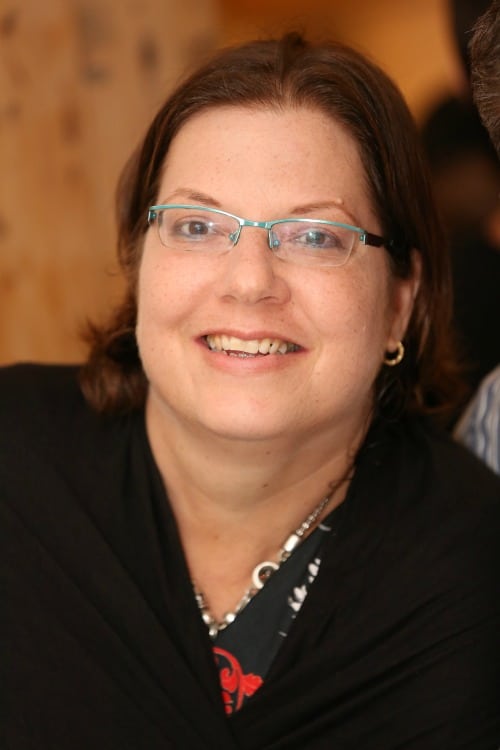
by World Moms Blog | Feb 27, 2014 | 2014, Cancer, Israel, World Interviews, World Moms Blog
It is with great sadness that we announce the death of a fellow World Mom, Neta. Neta, who was a good friend of our contributor, Susie Newday in Israel, lost her fight today with metatastic breast cancer. Our thoughts and sincere condolences from around the world are with her family and friends today.
Neta volunteered an interview about her life of living with metatastic breast cancer on World Moms Blog with the hopes of encouraging more mothers to get tested.

Neta sat down with World Mom contributor, Susie Newday in Israel to talk about living her life with metastasis breast cancer.
Goodbye, Neta. Thank you so much for letting us get to know you and for sharing what you knew with all of us. For that, we are forever grateful.
Neta’s 4 part interview of what it was like to live with metatastic breast cancer: Part I, Part II, Part III and Part IV.
— The World Moms Blog Community
World Moms Blog is an award winning website which writes from over 30 countries on the topics of motherhood, culture, human rights and social good. Over 70 international contributors share their stories from around the globe, bonded by the common thread of motherhood and wanting a better world for their children.
World Moms Blog was listed by Forbes Woman as one of the "Best 100 Websites for Women 2012 & 2013" and also called a "must read" by the NY Times Motherlode in 2013. Our Senior Editor in India, Purnima Ramakrishnan, was awarded the BlogHer International Activist Award in 2013.
More Posts




















